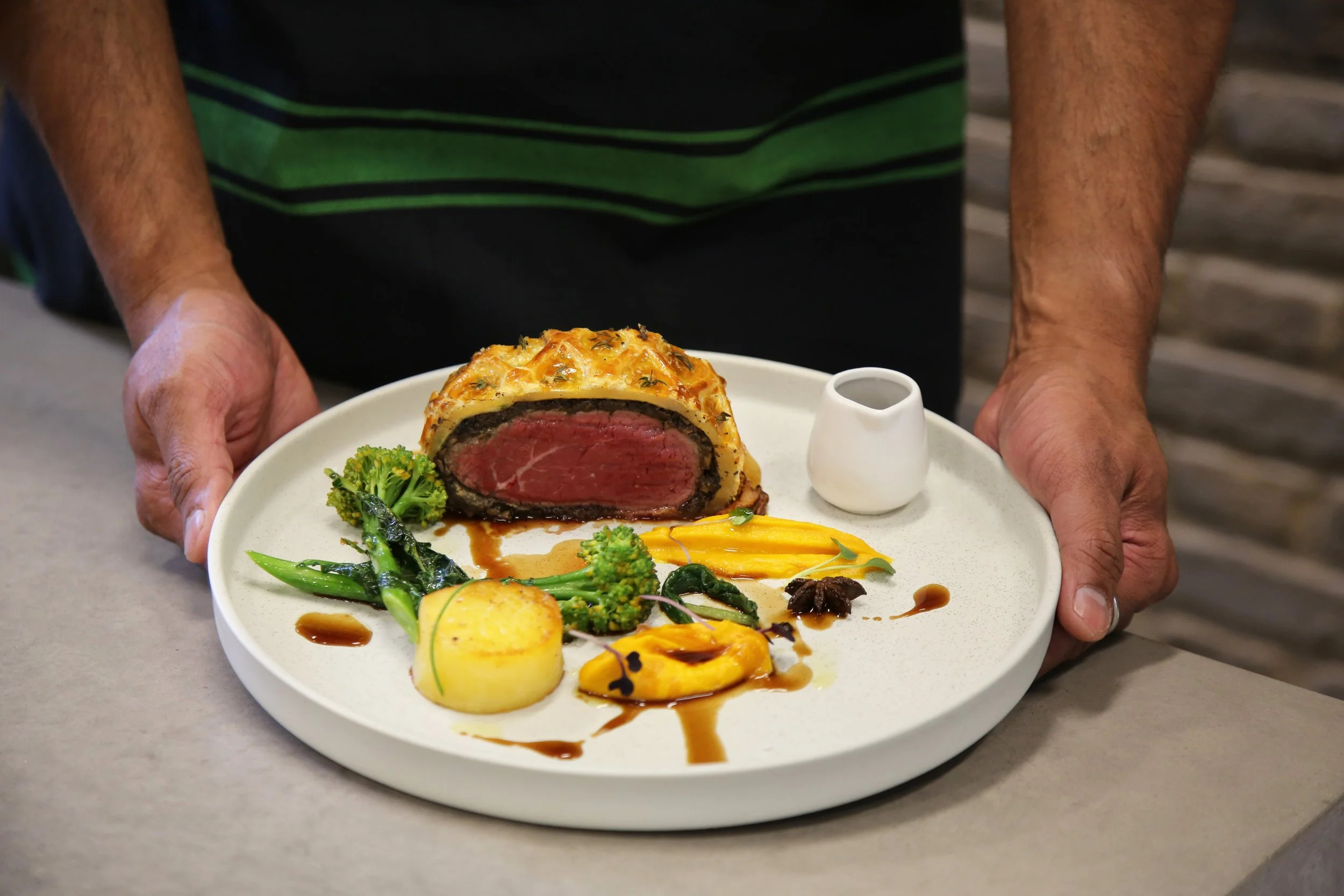THE STORY OF A LAMB DISH: FROM THE KITCHEN OF CHETAN PANGAM
By Zoe Lloyd
Zoe is a Wellington-based foodwriter and is one of the recipients of the Foodwriters New Zealand, Food Communicators Scholarships. You can follow Zoe on social media here.
Chetan’s Nawabi Galouti Burger
A lamb burger inspired by a classic Indian kebab has taken top honours in the 2024 Burger Wellington. It’s the second year in a row that One80 Restaurant executive chef Chetan Pangam and his team have won the annual competition, which is a much-loved part of the Wellington on A Plate festival.
Chetan describes himself as a chef who likes to experiment and do things differently. In 2023, his winning burger contained a spiced chicken curry. While researching concepts for this year’s entry, he discovered that previous winners had never used lamb.
“The reason why I chose lamb was because I knew it was going to be hard and I just wanted a challenge,” he says.
His Nawabi Galouti burger is based on the Galouti, a soft-textured kebab first made in Lucknow, by the Awadhi Nawabs in the late 17th century. Chetan’s Galouti lamb mince patty has a melt-in-the-mouth texture and is flavoured with the following aromatic spices; kebab chinni, long pepper, stone flower, khus roots, rose, kewda, saffron, beetle root and more.
Chetan describes that the Nawabs enjoyed indulging in the finer things in life, so he accompanied the burger with a pulled lamb ‘cigar’ made from slow cooked lamb shoulder and wrapped in filo. A visually stunning white fluffy ‘snow’ on top of the burger, made from lamb fat collected after braising the meat, represents ash from the cigar. A buttery spiced croissant bun branded with ‘Lumina’ holds the burger together, while a side of fries sprinkled with gunpowder podi masala, a quintessential Indian condiment, completes the story and the dining experience.
Flavour drives Chetan’s creative process, he says.
His kitchen team has been working together for many years and is familiar with his style of cooking. The burger is a good example of how they work collaboratively, with team members’ suggestions for flavours and components making it into the final dish.
Diner feedback is also a very important part of the process, Chetan explains. “I make a point to go and talk to more than 50% of my diners on any given day… I ask questions like do you think that was too spicy? Depending on the answer we go back into the kitchen and readjust certain things.”
The gunpowder podi on the burger fries underwent this practice, where Chetan’s team kept modifying the spice until both he and his customers were comfortable with the level of heat.
As a Beef and Lamb Ambassador Chef, Chetan is very passionate about using New Zealand lamb in his kitchen. He says New Zealand farming processes – how animals are bred, what they’re fed and how they’re treated – is what makes the meat so special.
“Every breed and every supplier have a different flavour profile, and they are all delicious.”
The lamb cigar is an example of how important it is to let the meat speak for itself, he says. “We haven’t really added too much in terms of spice so hopefully the only thing you can taste is lamb.”
As a Beef and Lamb Ambassador, Chetan's responsibilities range from catering and speaking at large-scale events to mentoring emerging chefs. He wants to bridge the gap between farmers and consumers, and highlight the exceptional quality of New Zealand beef and lamb. He says the role gives him more creditability in discussions about beef and lamb and has helped give his words more meaning when talking to or about farmers, suppliers and chefs.
“My signature dish, the beef Wellington, has been on my menu for 15 years, the meat is from the same farm, the same supplier, nothing has changed except the price,” he laughs.
Chetan’s famous Beef Wellington
Encouraging the next generation of chefs is also part of Chetan’s role. He believes it’s important for emerging chefs to know where the food they’re cooking comes from, and to have a strong foundation of knowledge when it comes to identifying different cuts of meat.
“One of the things that I have noticed is that post-COVID, a lot of young chefs aren’t being taught the basics, they watch one demo and then think they know that’s how it’s done,” he says.’ Chetan explains.
Through sharing his knowledge and providing mentorship, he hopes to be able to help young chefs effectively showcase New Zealand beef and lamb in their own kitchens.
In the meantime, he’s looking ahead to next year’s Burger Wellington contest and has already begun brainstorming ideas. “We’ll need to wait for the theme to be announced before we can continue this process."
Chetan is excited about another challenge, “I don’t like things that are monotonous and safe… for me predominantly it’s about picking a challenge and making sure whatever I come up with is flavourful.”


